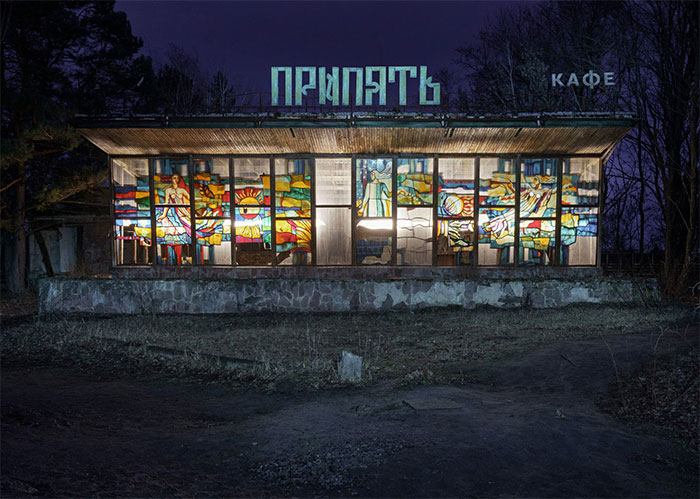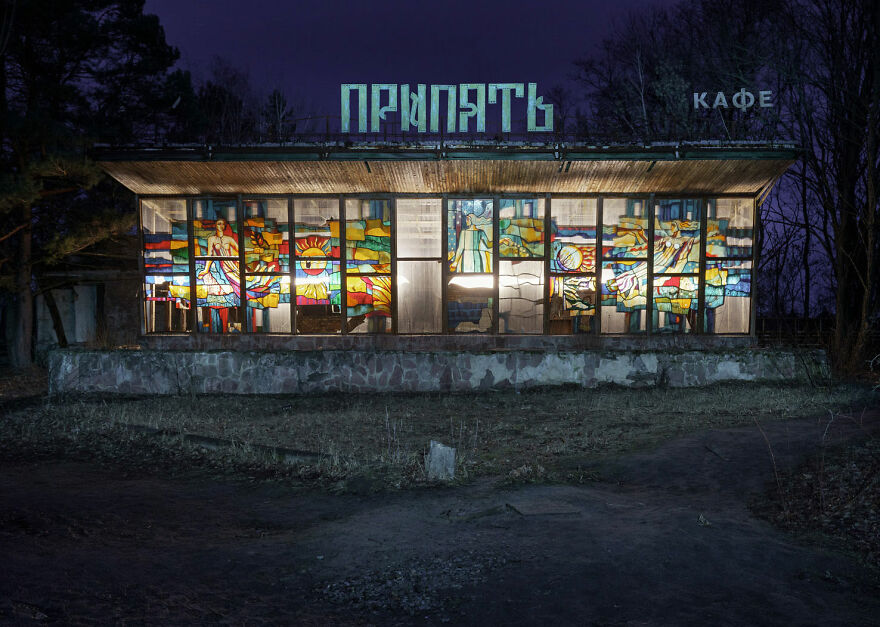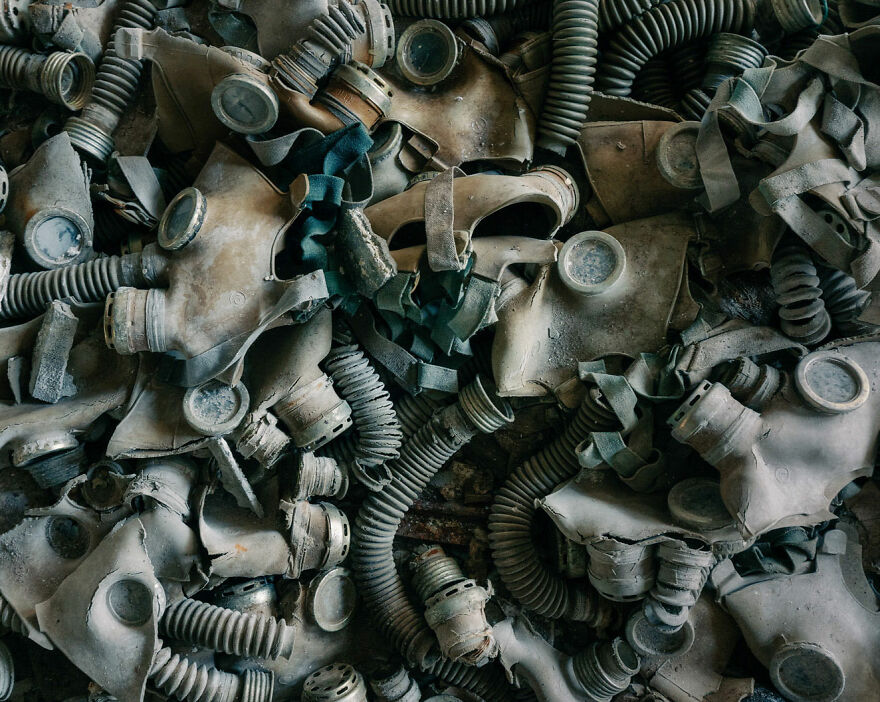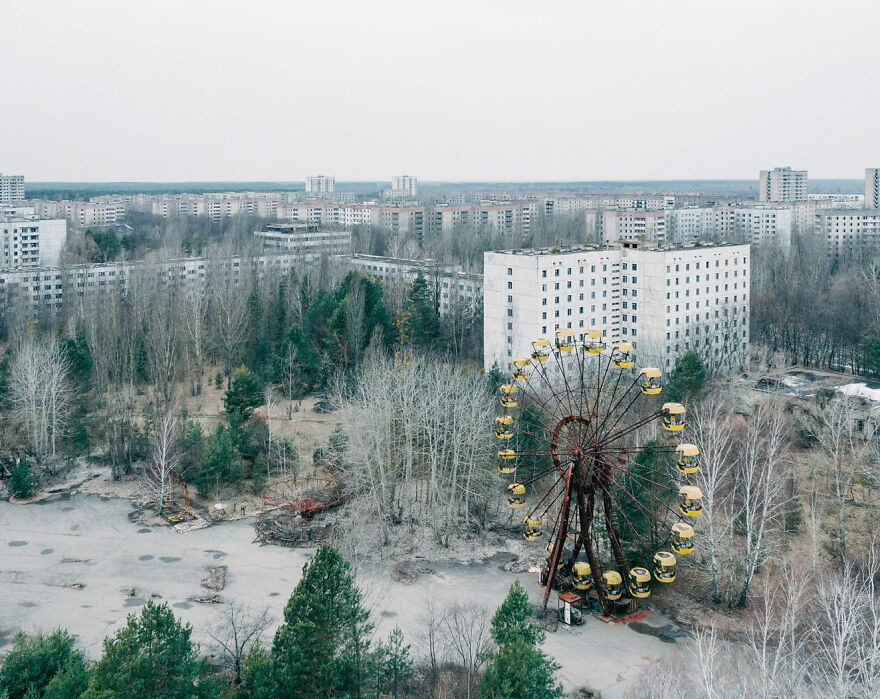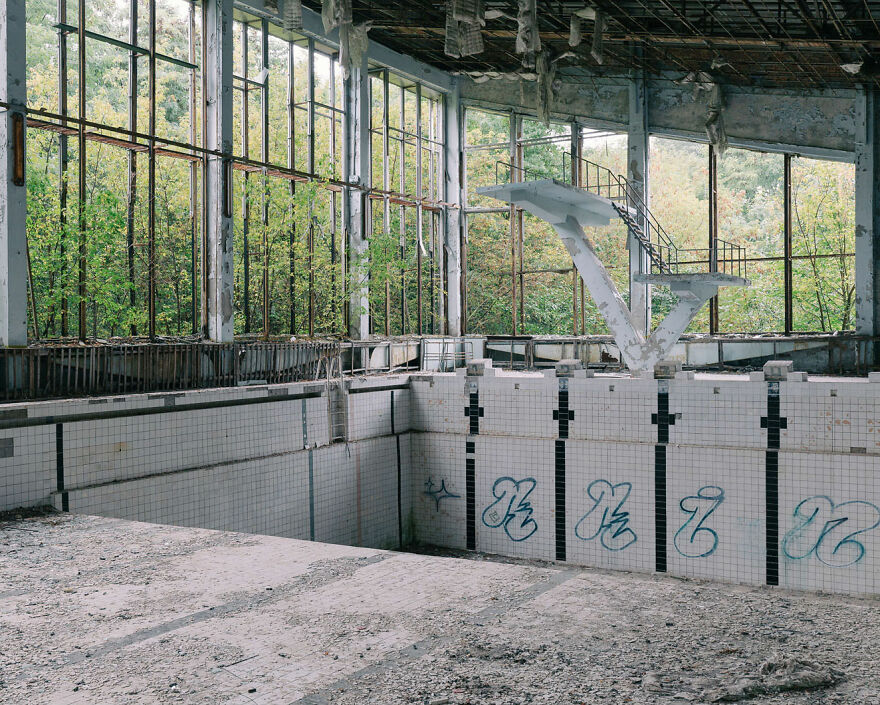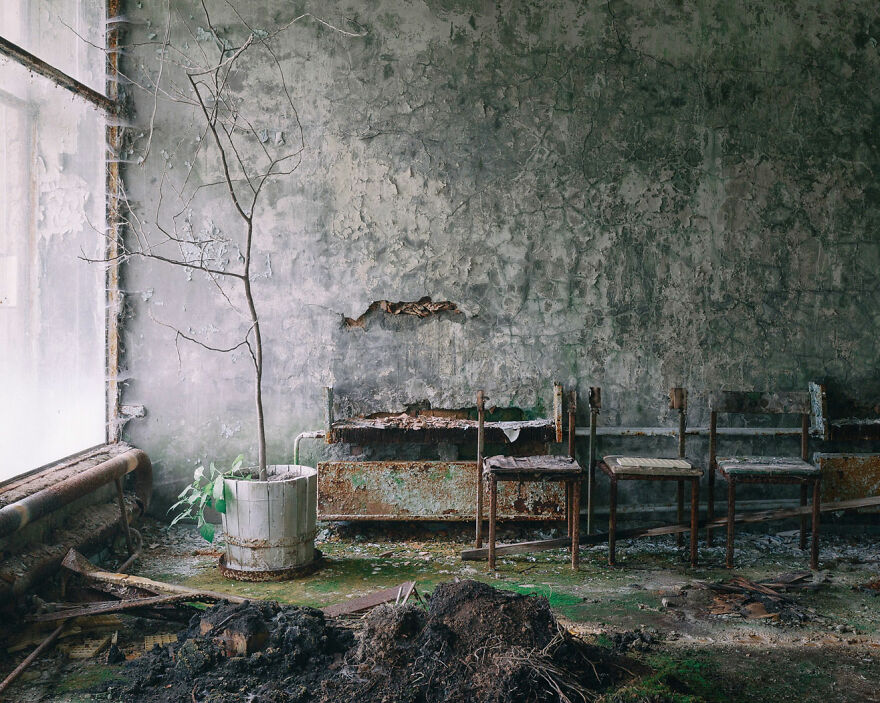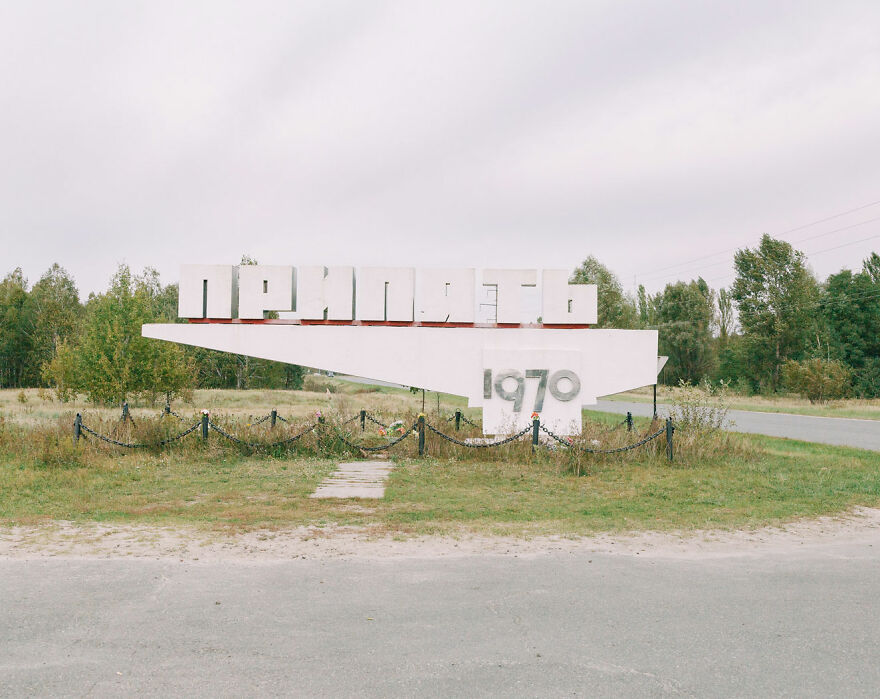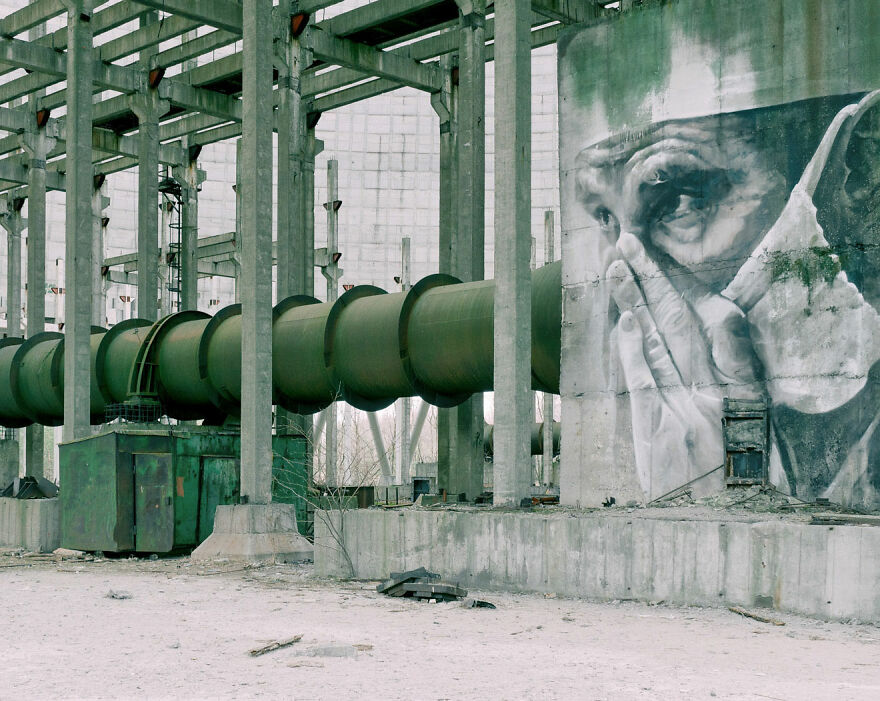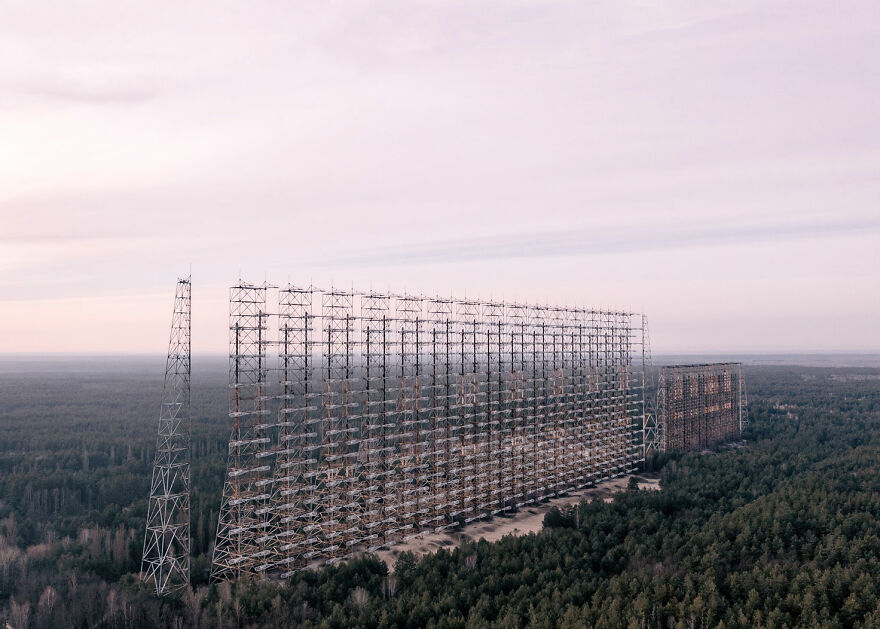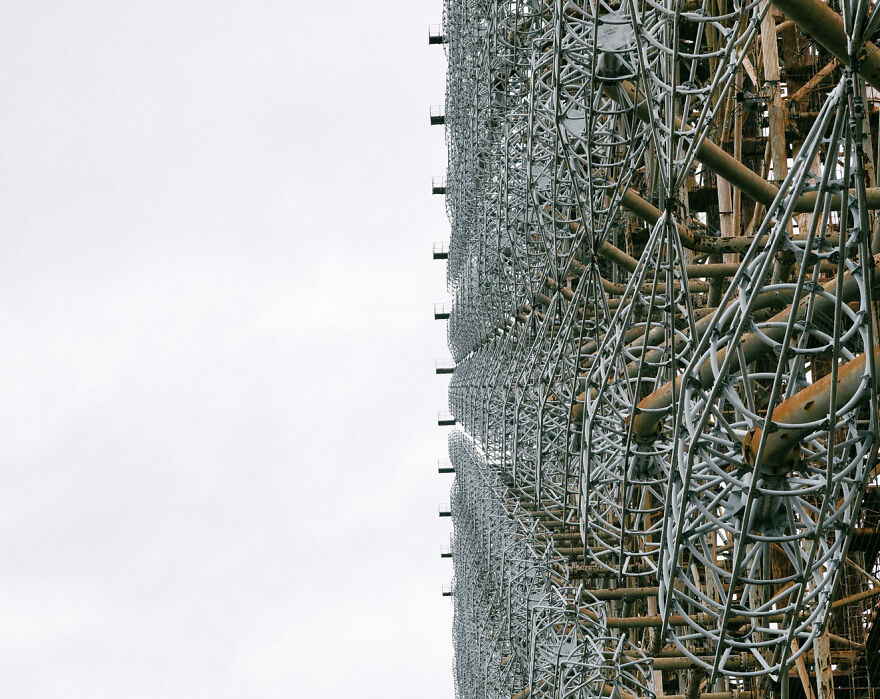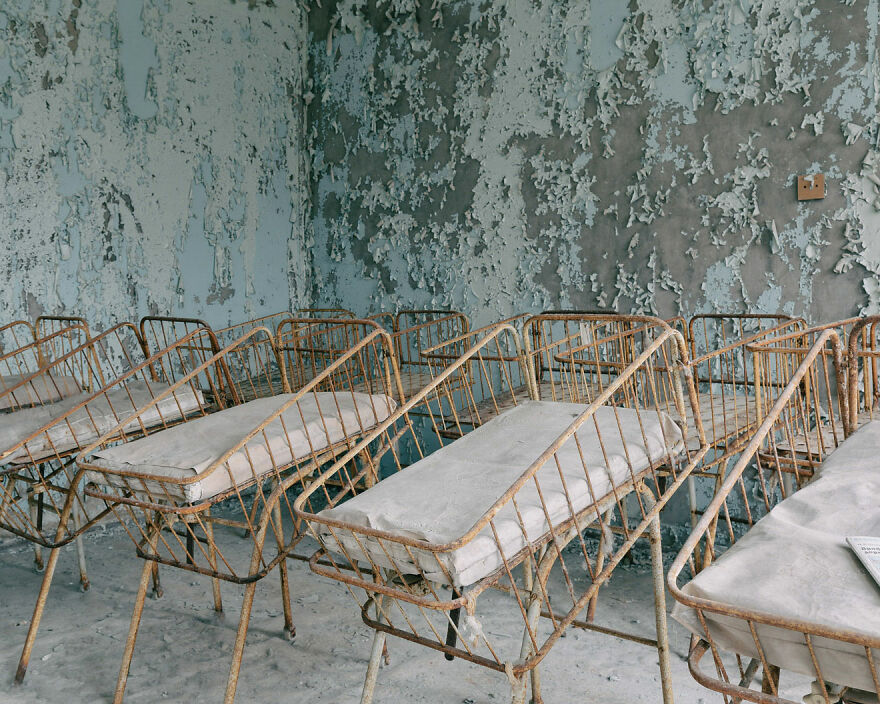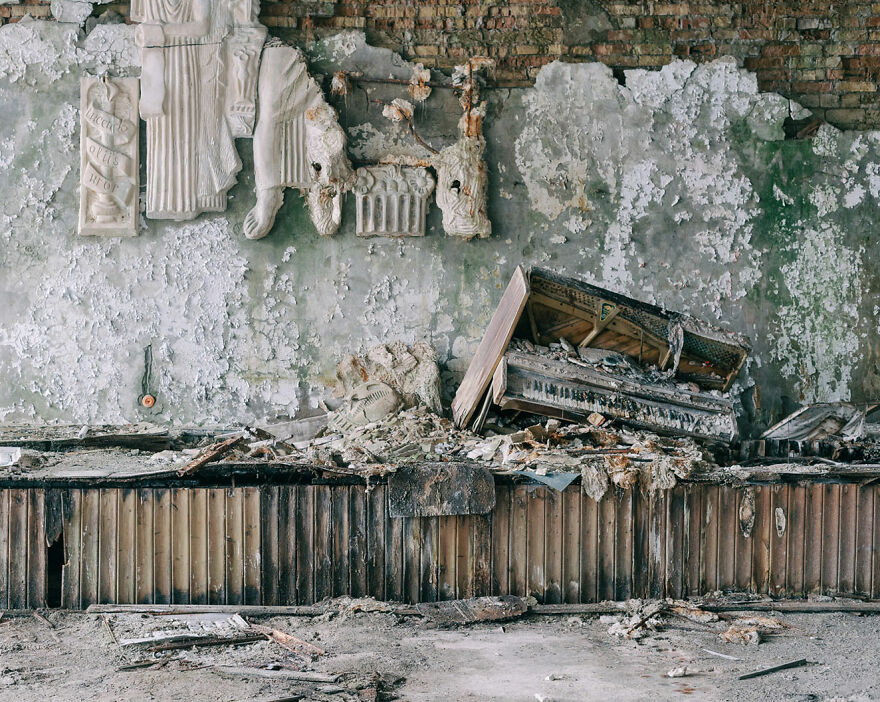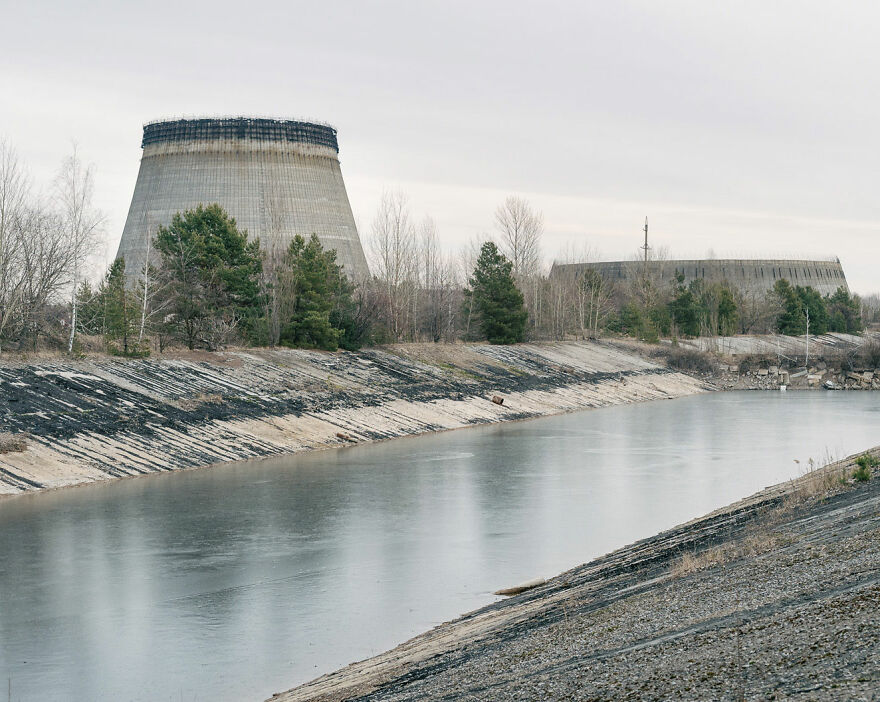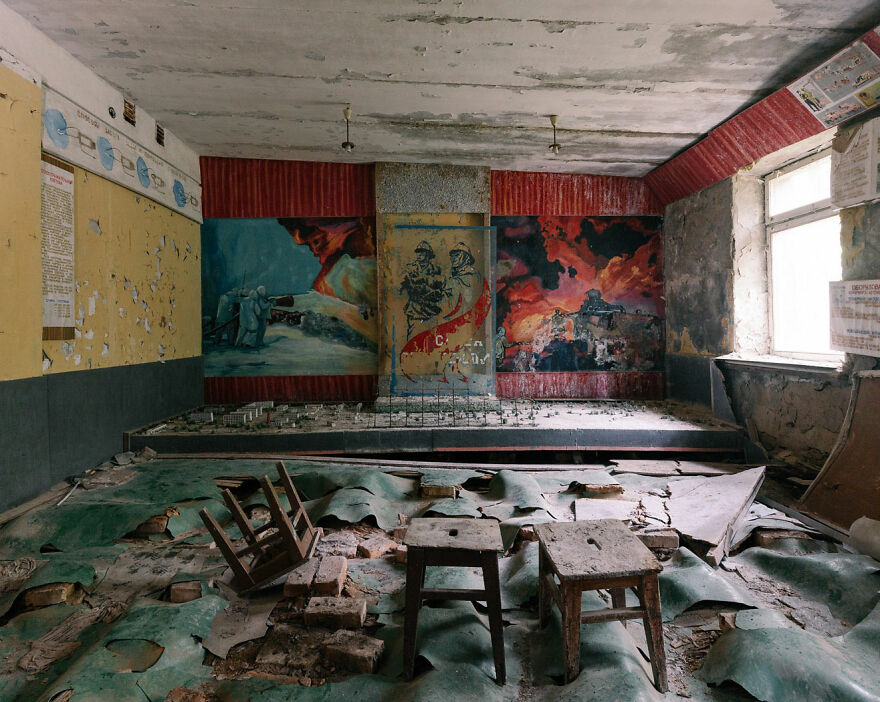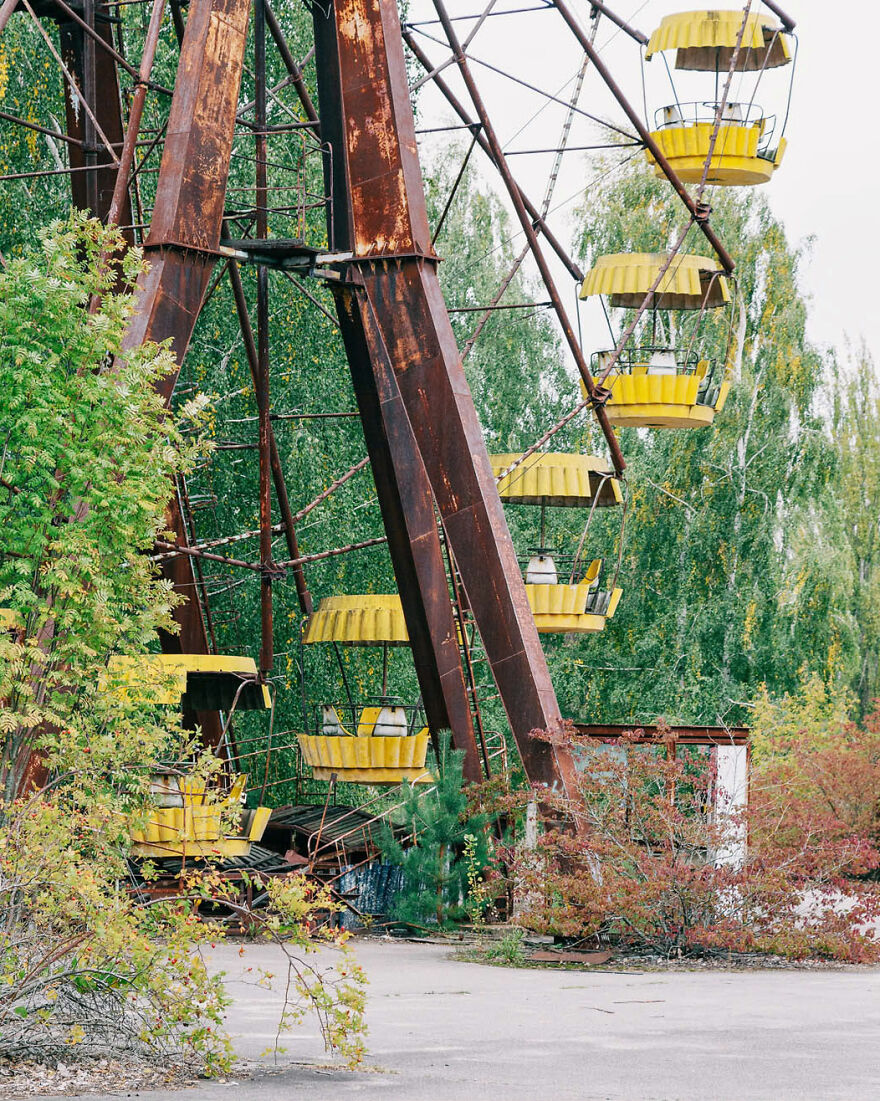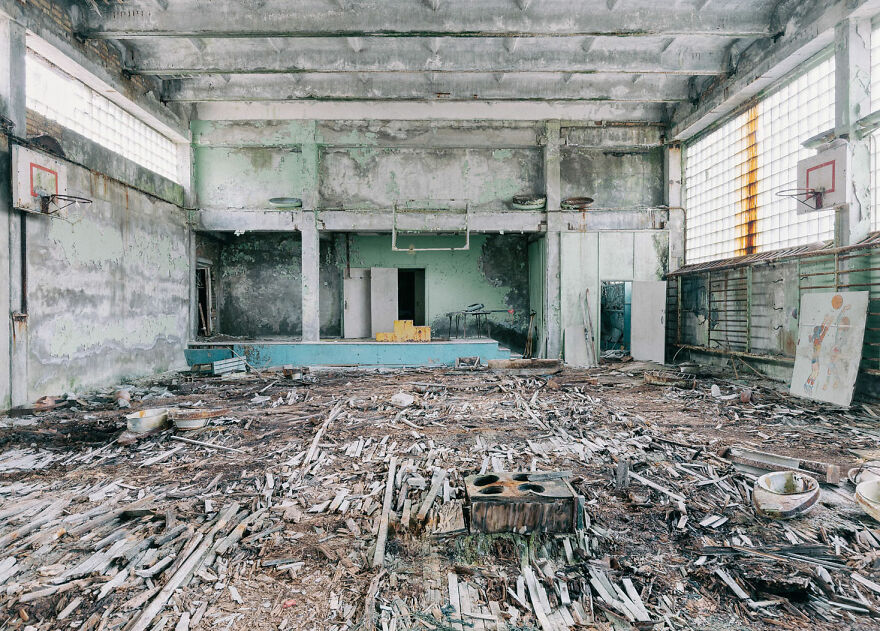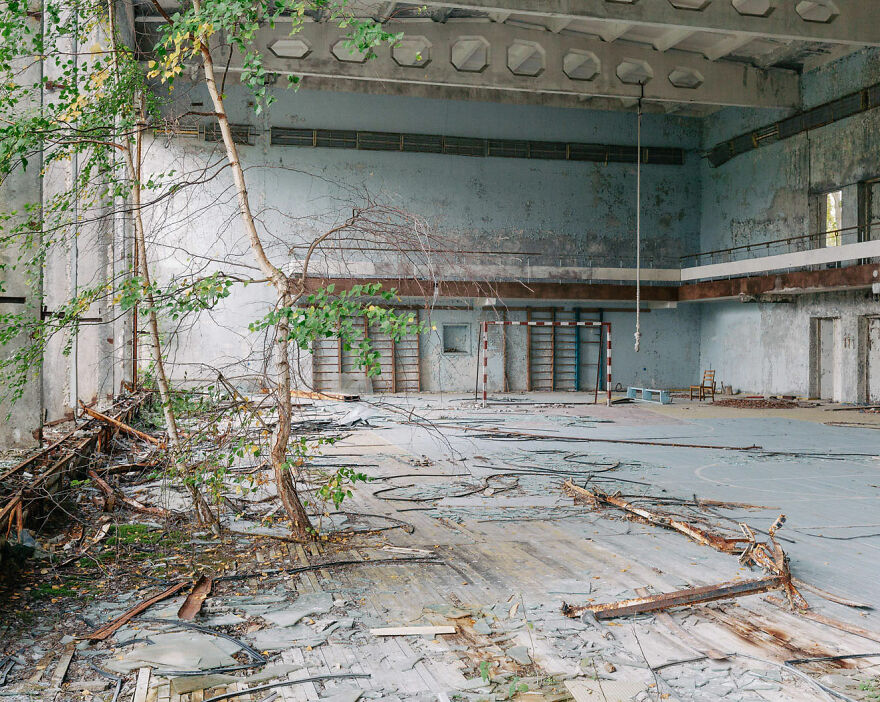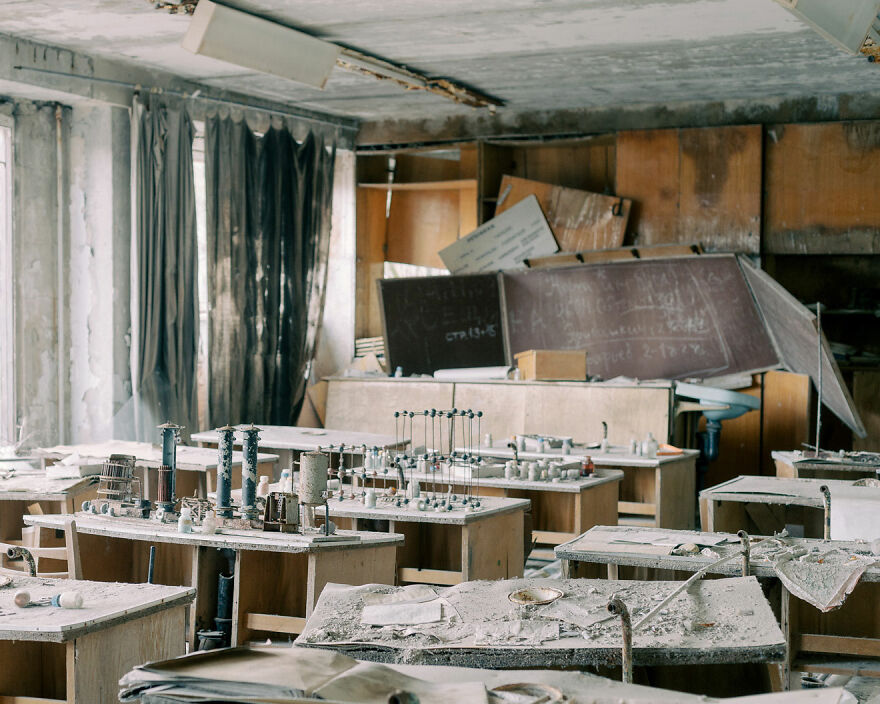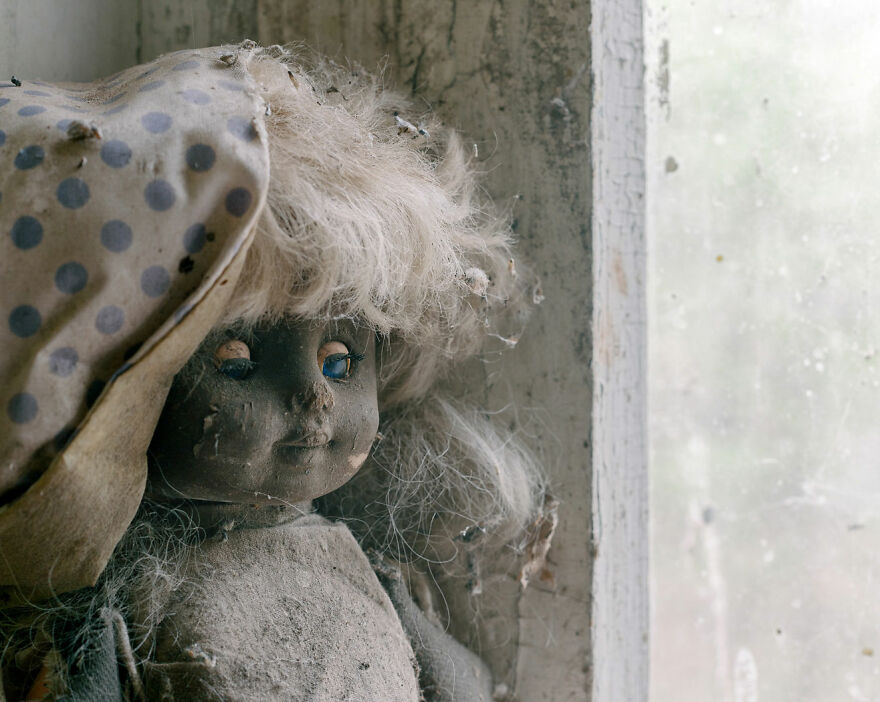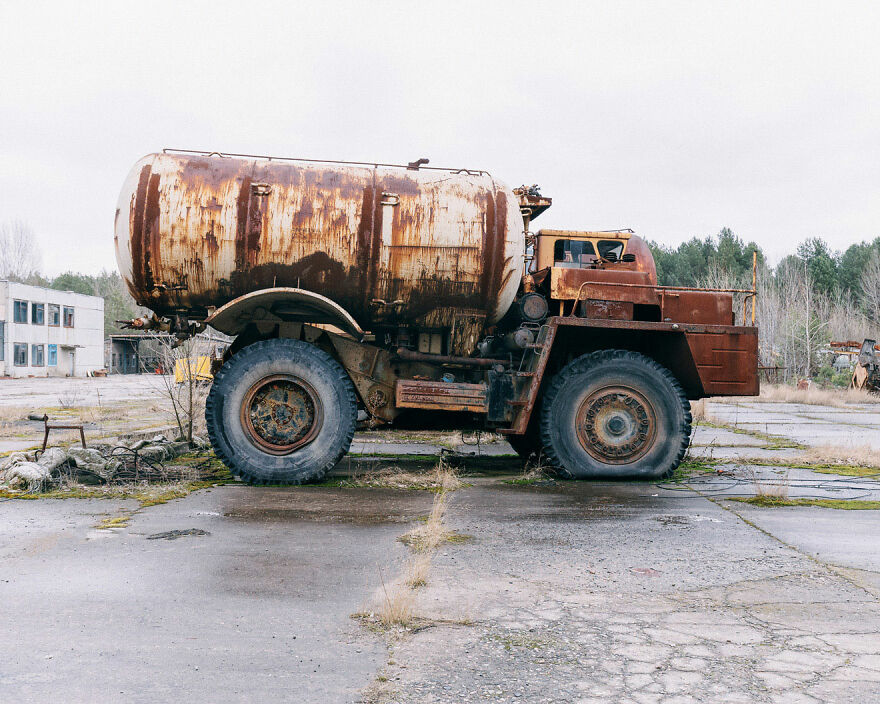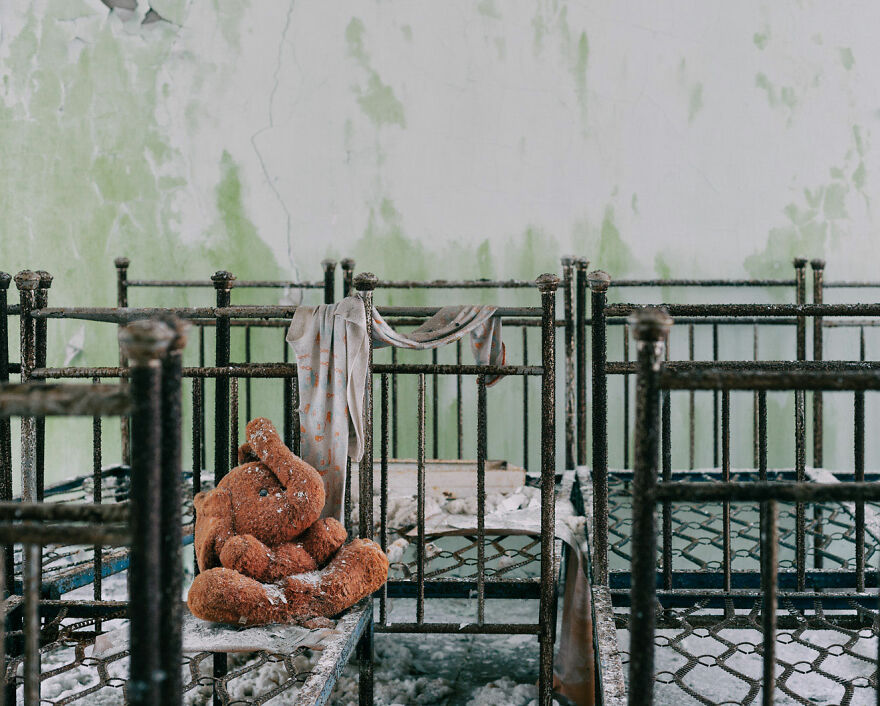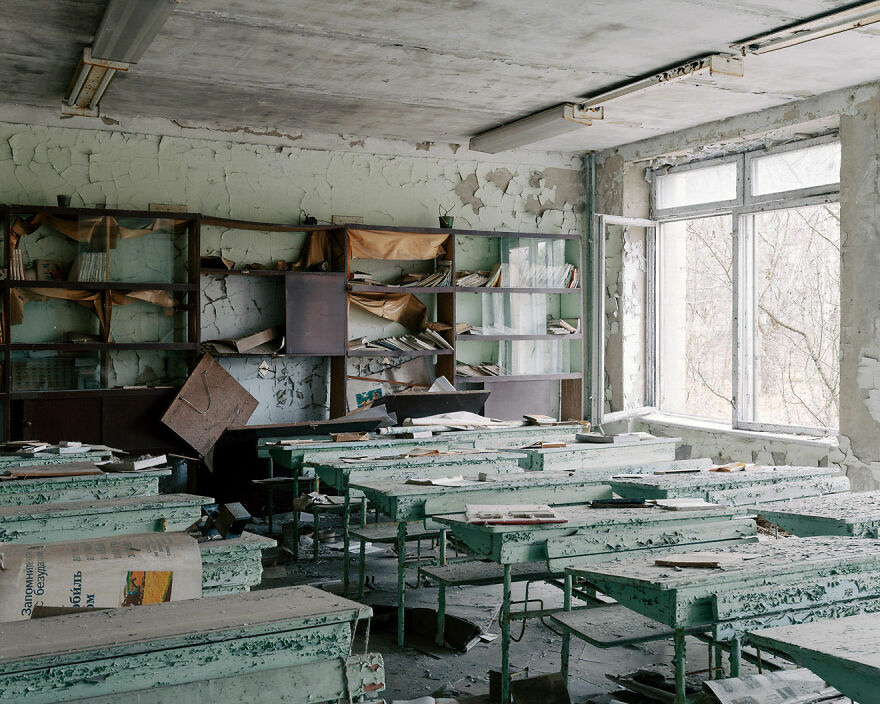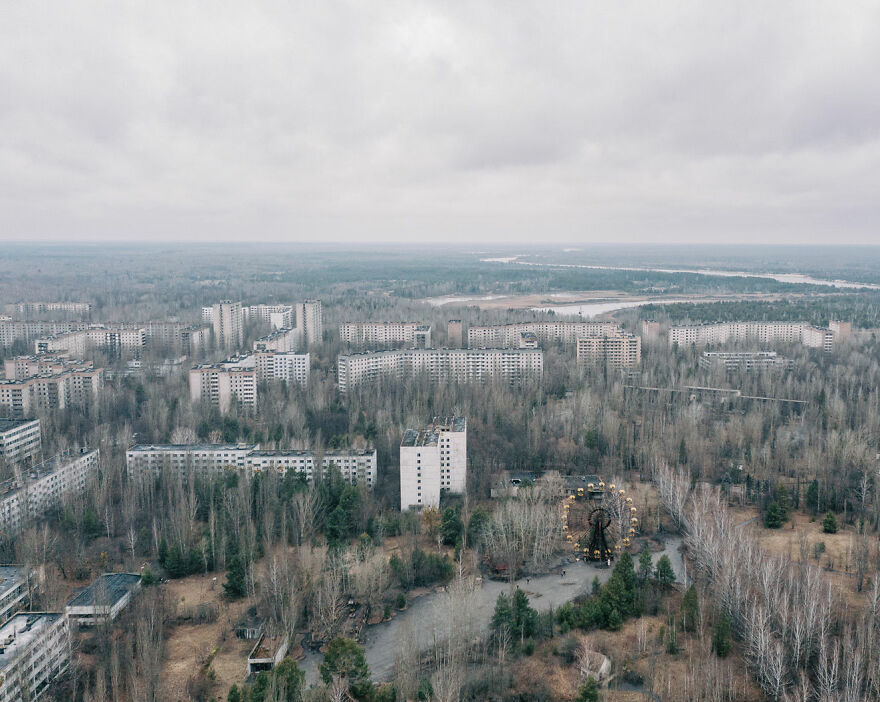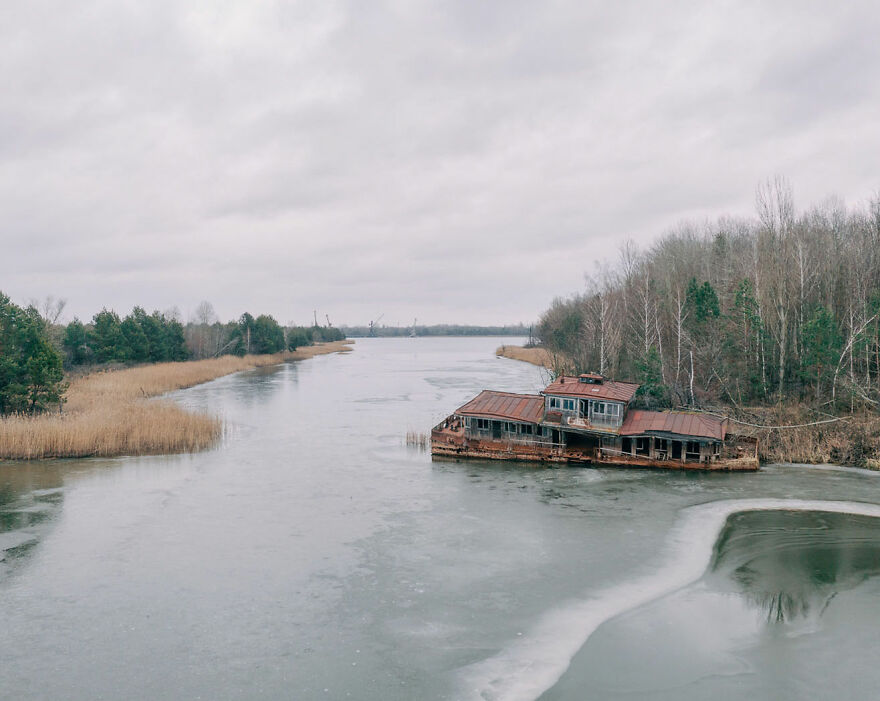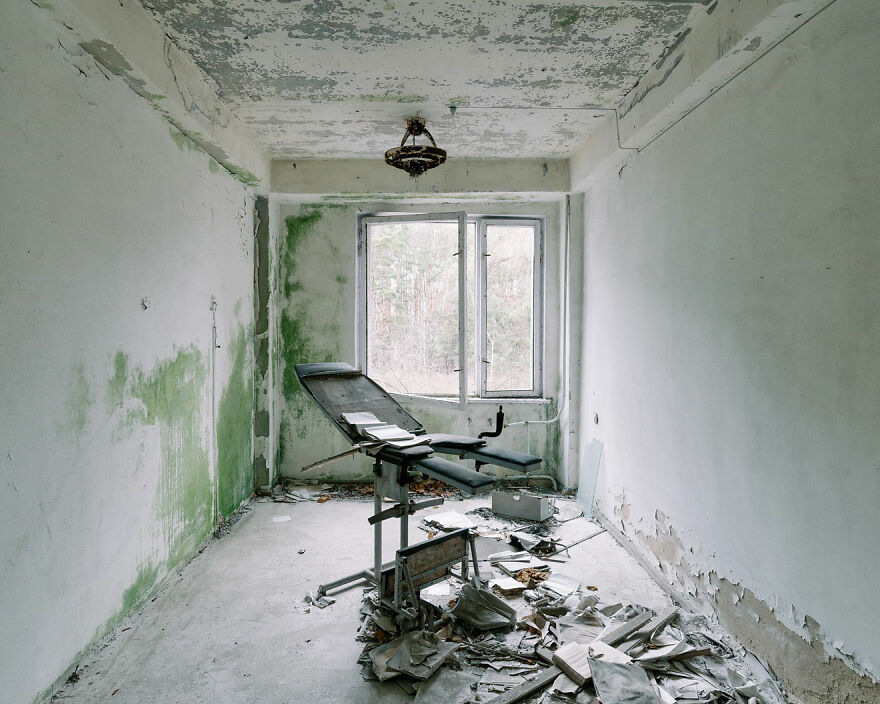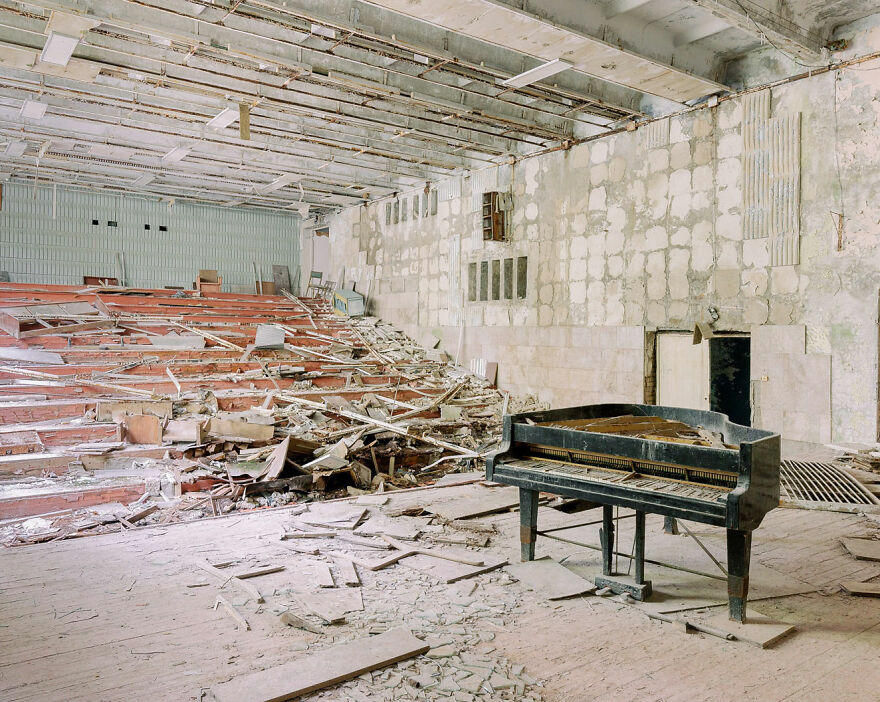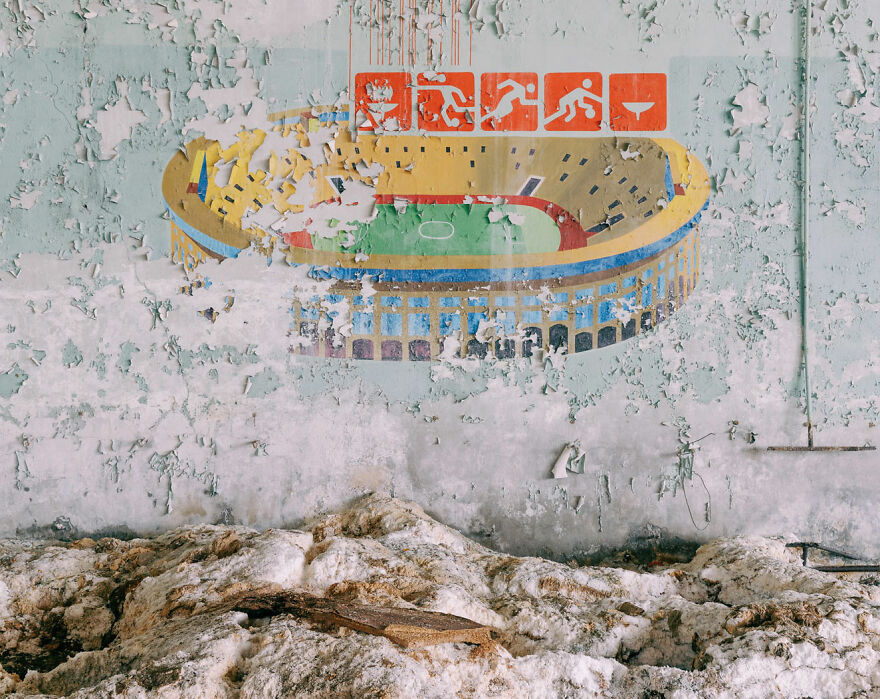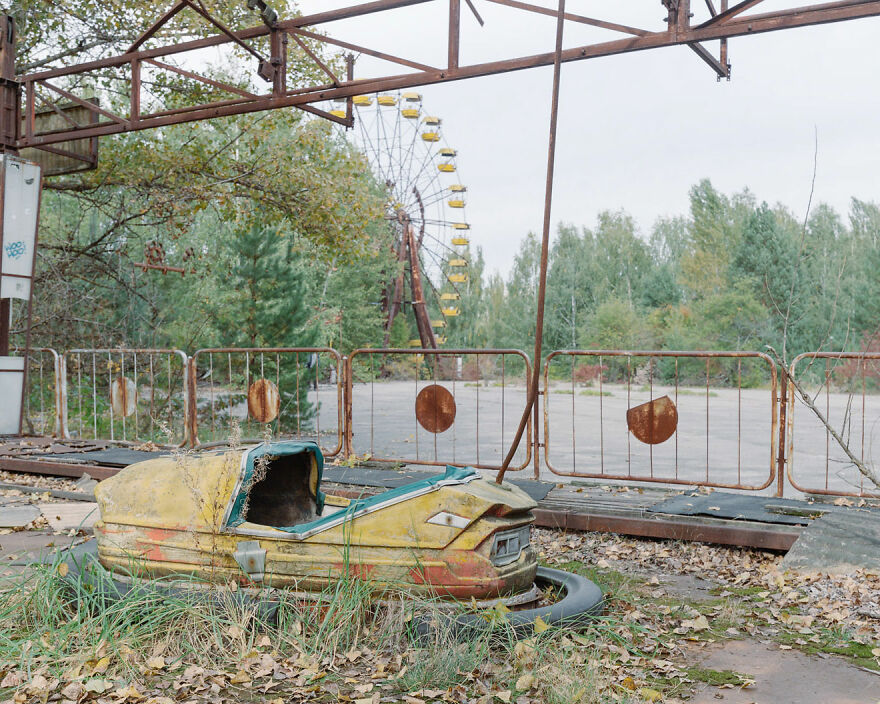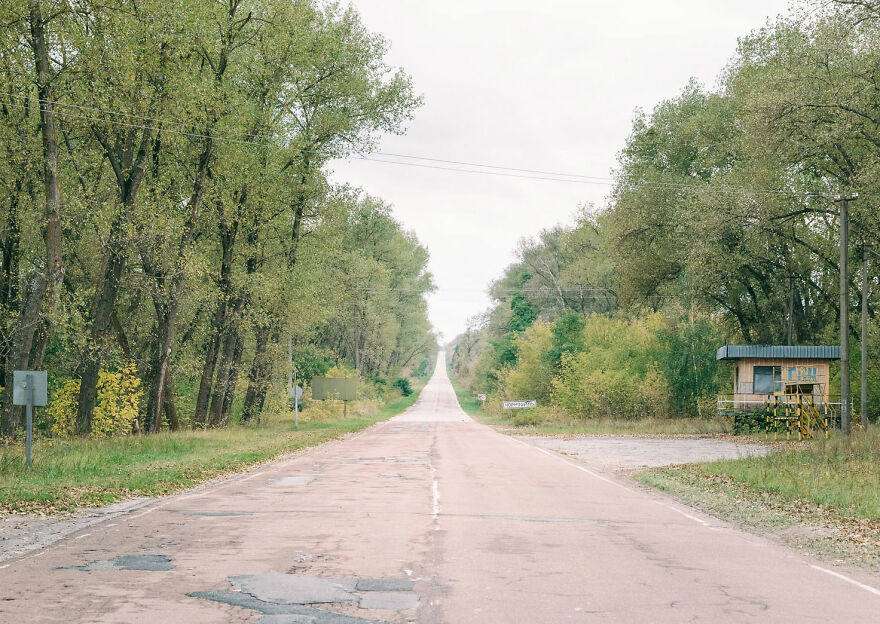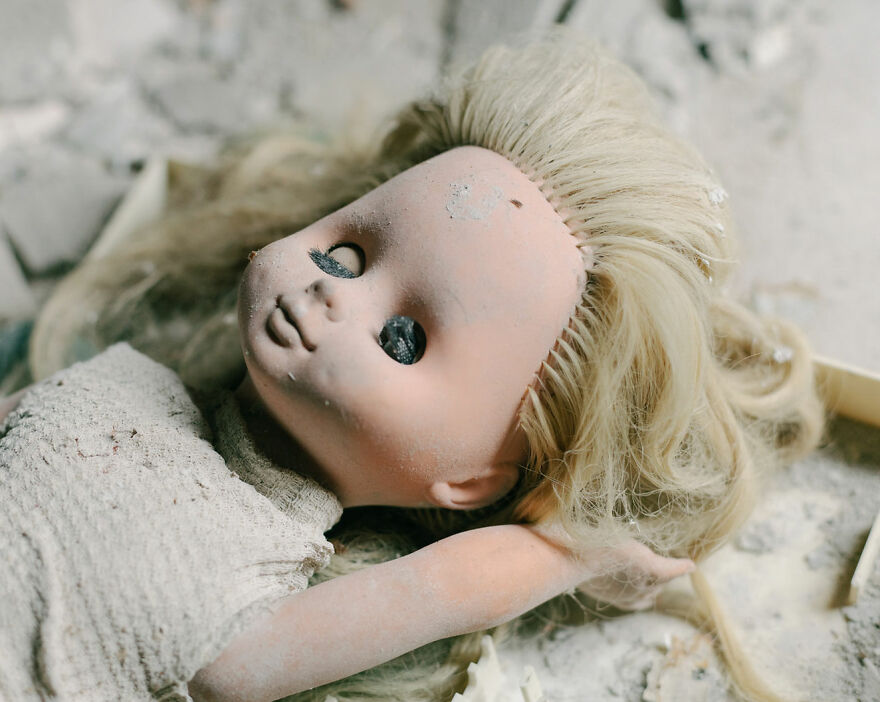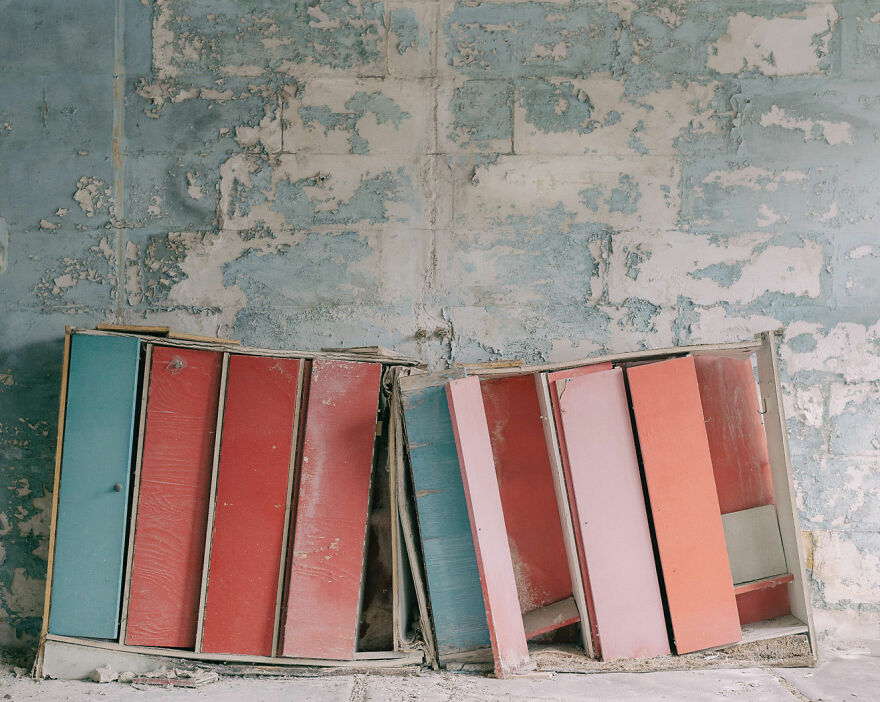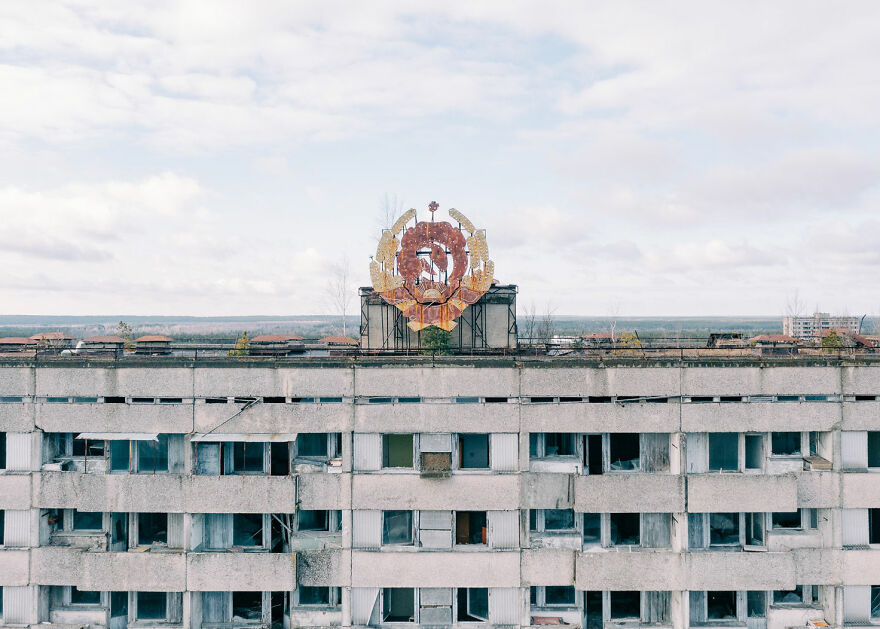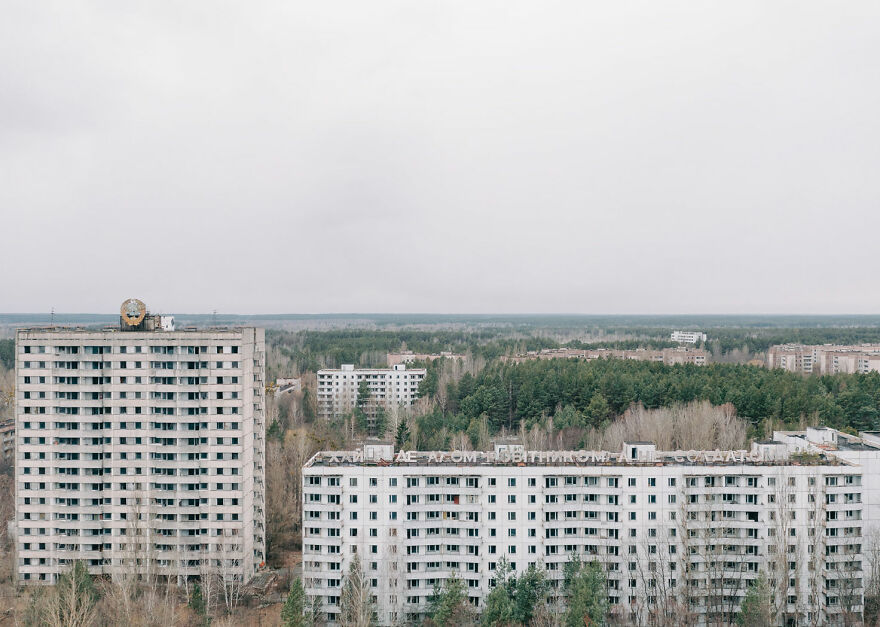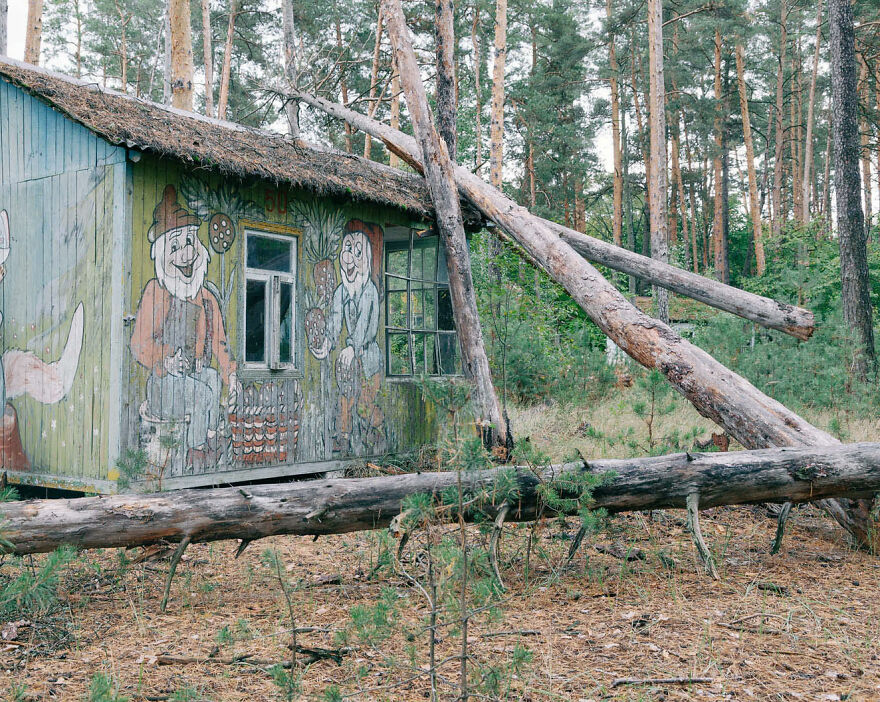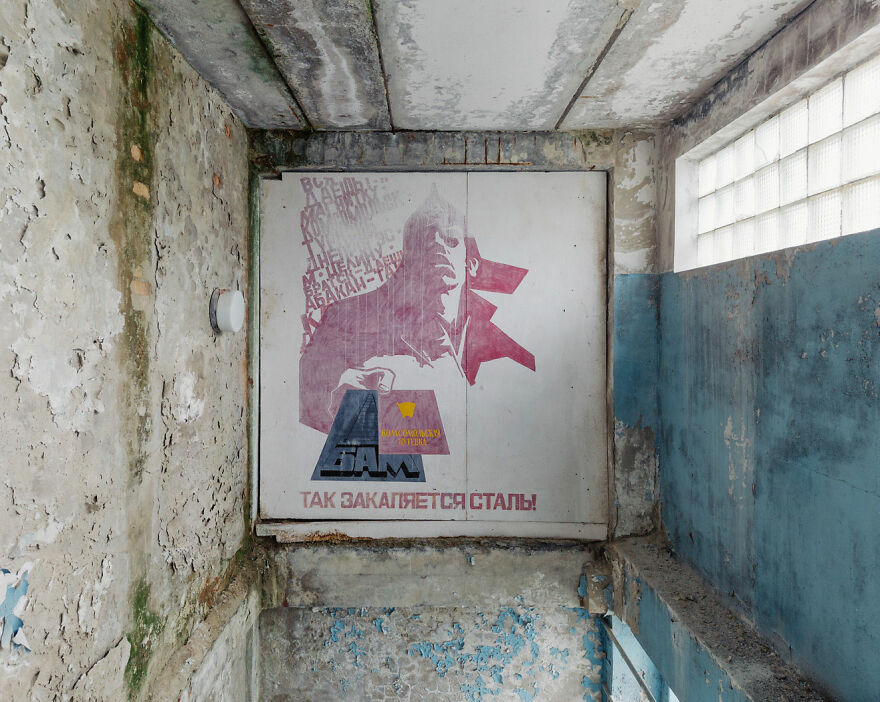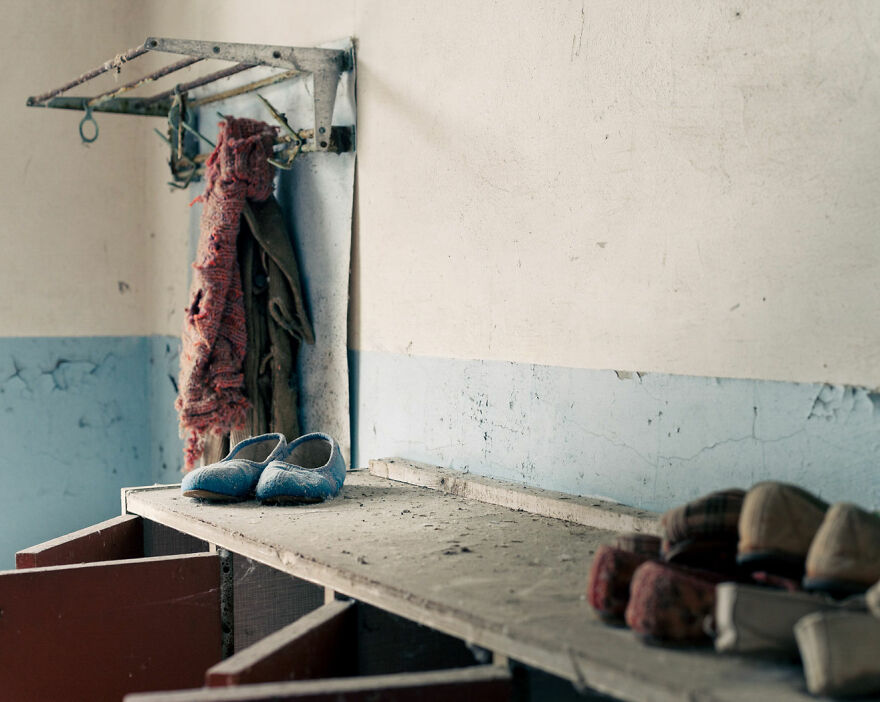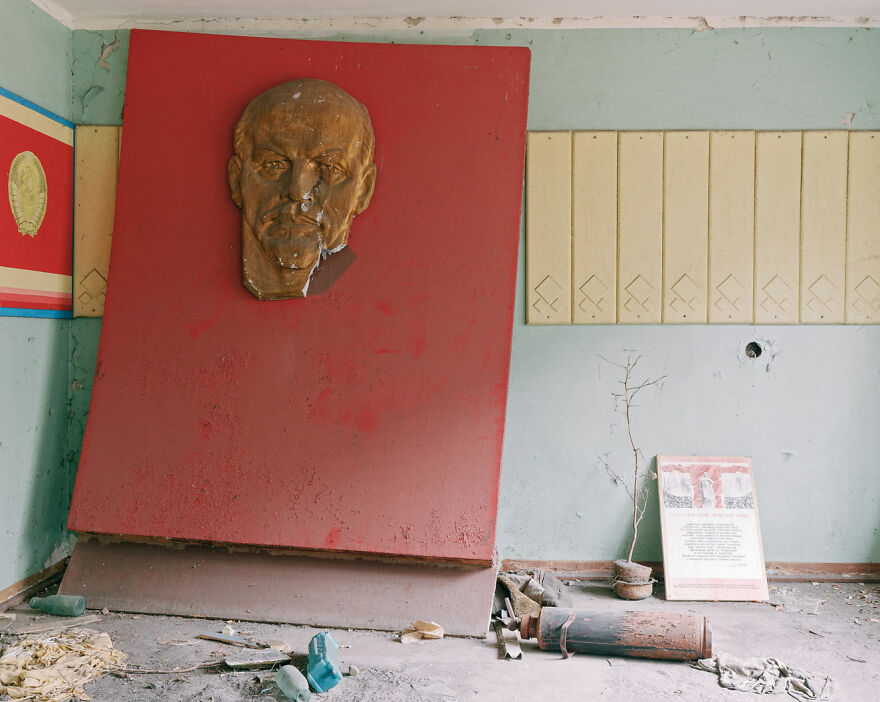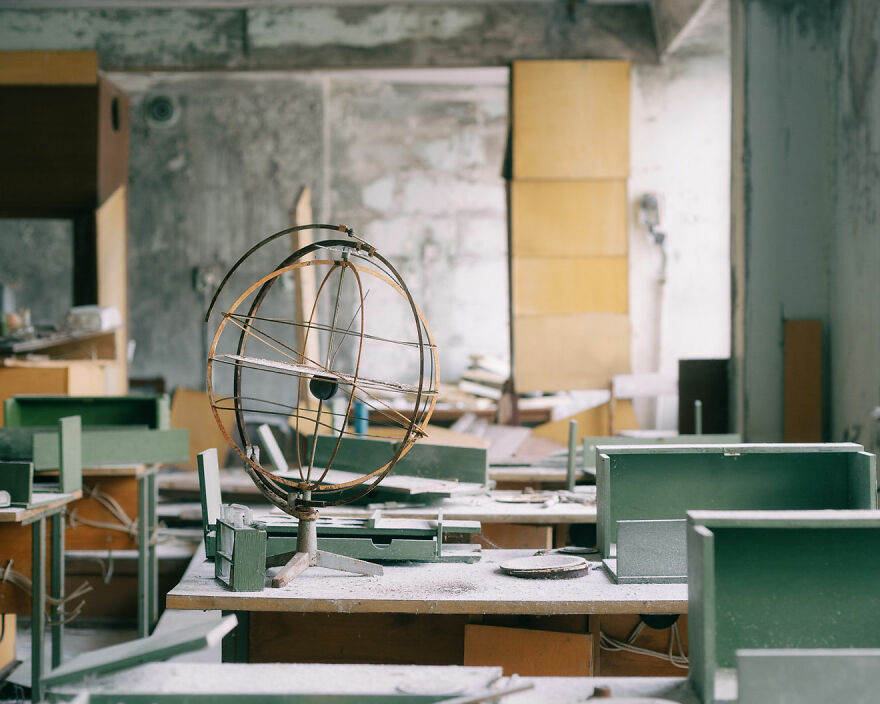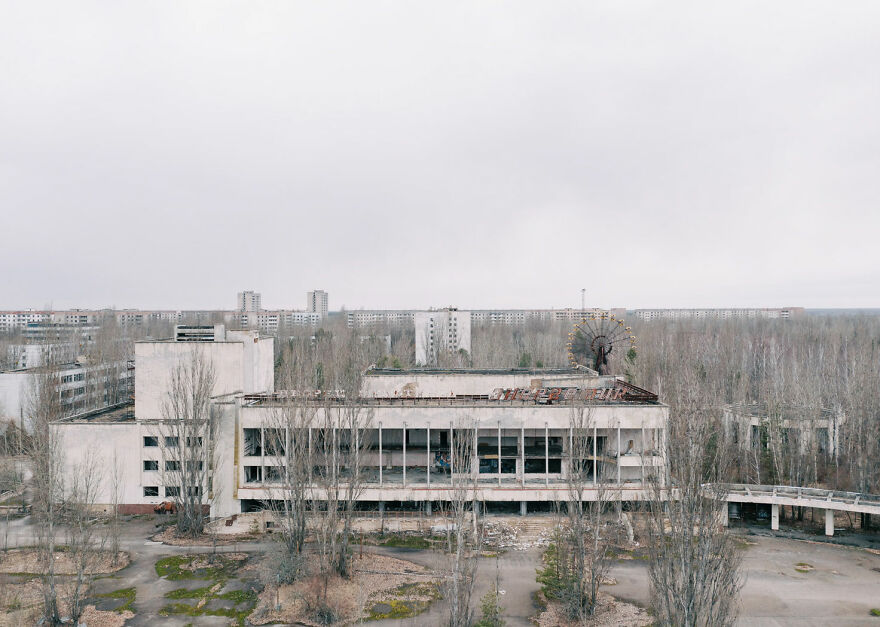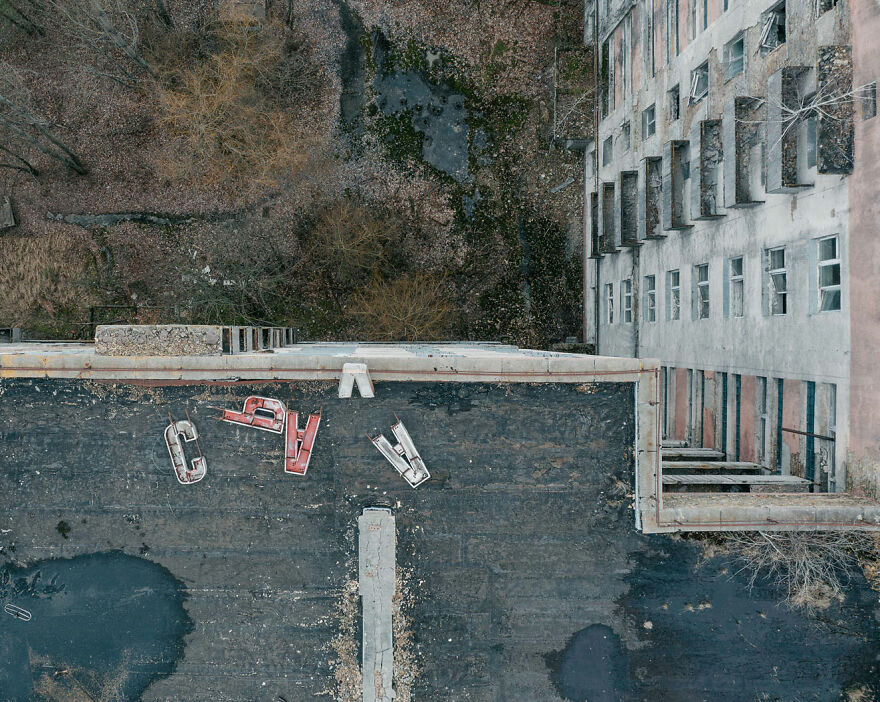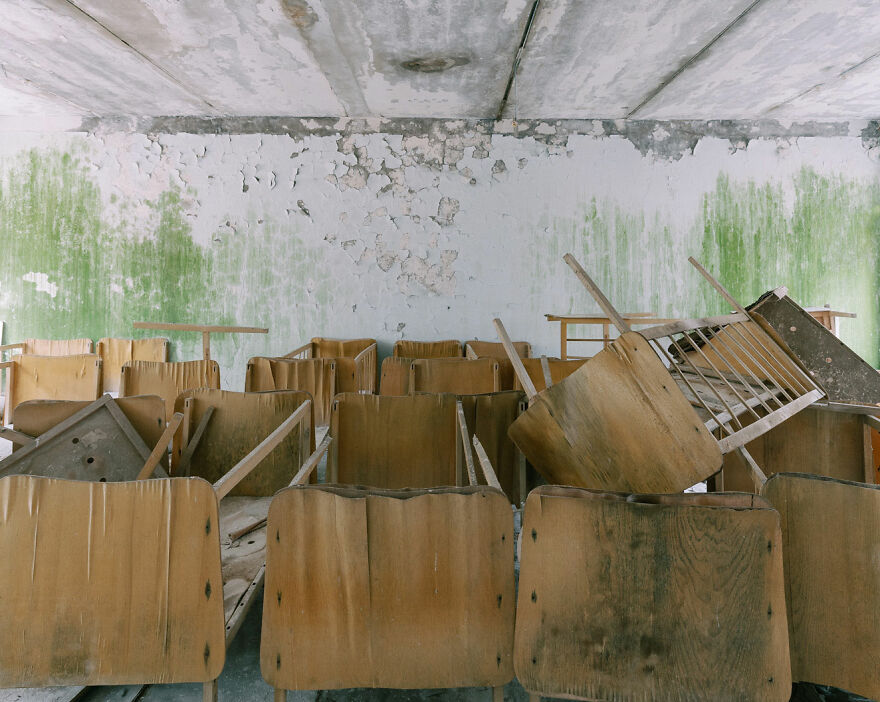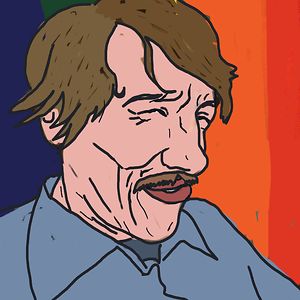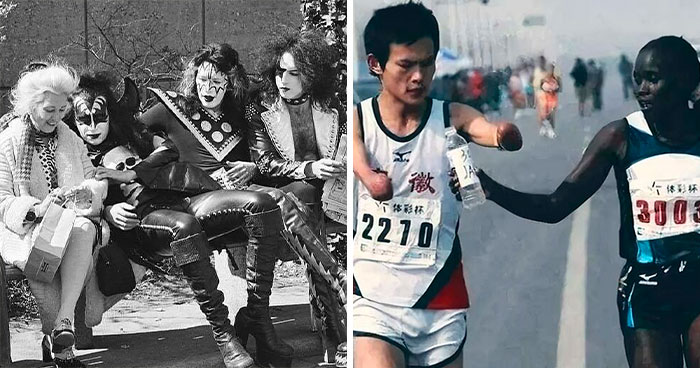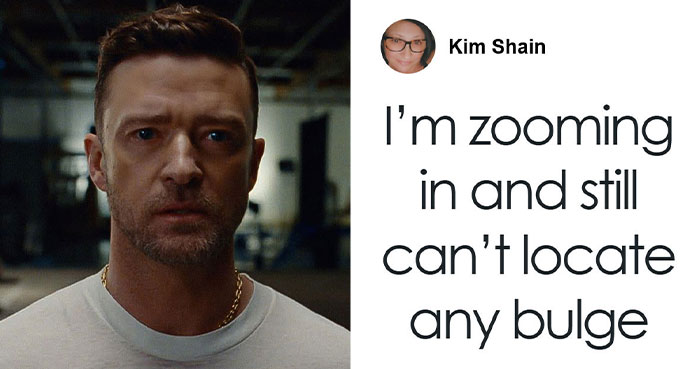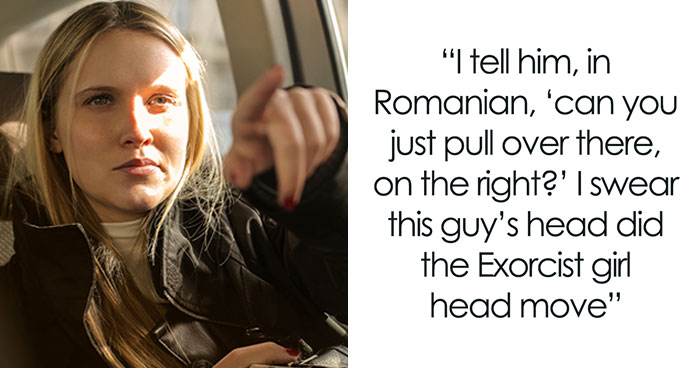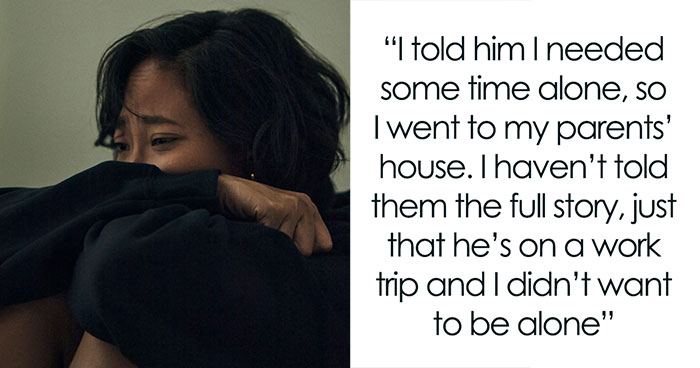
6Kviews
I Explored The Chernobyl Exclusion Zone 35 Years After The Nuclear Disaster (40 Pics)
While the world is still firmly in the hands of the Covid-19 pandemic, April 26th marks the 35th anniversary of another catastrophe: The Chernobyl meltdown. It not only changed the lives of the people in the Chernobyl Exclusion Zone in a cruel way forever; even life all over Europe was no longer the same. The Chernobyl meltdown not only caused a huge radioactive cloud that rained down in large parts of Europe and contaminated lettuce, wild animals, milk, and mushrooms to this day—it also showed us how dangerous nuclear power really is and that we urgently need a turn out of nuclear power.
35 years ago, that sounded like an eternity away. But what are 35 years if the area will remain uninhabitable for the next 24,400 years?! What are 35 years if people still die as a result of the disaster today? It is not possible to determine the exact number of victims that died as a result of that meltdown: various organizations speak of 4,000 to 60,000 dead people. It is important to me to mention all these impacts before I tell you about my personal experiences, as the awareness of the disaster and the area has developed in the wrong direction because of the hype about the TV series and the self-expression of many tourists.
More info: andyschwetz.de | Instagram | Facebook
This post may include affiliate links.
Wild Nights
Café Pripyat was once known for the tastiest ice cream in town. On nice and sunny days, it had always been well-attended down to the last seat. I`m not sure whether there was still business here in the evening, but the artful glass facade still left a great impression on me at nighttime.
The exclusion zone is certainly interesting, but it is and will remain a memorial where it is also necessary to pay respect to the victims and legacies. My interest in the disaster started to develop a long time before I got into photography. In general, I’ve always had a certain preference for meaningful and post-apocalyptic places, especially in combination with tragic events.
Always Well Prepared
There are innumerable gas masks spread all over Pripyat. One might think that the main reason is the proximity to the Vladimir I. Lenin power plant, but indeed, it was not uncommon to have large amounts of gas masks in stock, for example in schools and other public buildings in the Soviet Union: during the Cold War, the fear of a nuclear attack by the USA was omnipresent.
Ferristales
View of the famous amusement park that was supposed to open on April 30, 1986, four days after the accident.
In the super disaster of 1986, it wasn’t just the catastrophe that played a role for me, but also the events that led to it and how the Soviet system subsequently acted were important components of my thoughts and interests. In addition, of course, there is my passion for abandoned places and the legacies of the USSR, so all that reasons led to a really deep connection to this area. So it was only a matter of time until I got the chance to visit the exclusion zone.
The Pool Azure
This is the well-known swimming pool “Azure”: it is probably the most famous structure in Pripyat besides the Ferris wheel. It also appeared in video games like Call of Duty “Modern Warfare.” This pool was still in use even after the disaster and the following evacuation: liquidators and workers used it even until 1998.
Wait Forever
Here you can see the waiting area of the former hospital No 126. This is the hospital where the first firefighters from the reactor disaster were delivered and treated. The contaminated uniforms were brought to the basement straight after the arrival of those firemen to prevent further contamination—and they are still there today. However, it is advisable not to enter the basement because it still is one of the most contaminated places in all of Pripyat! So, even if I would have loved to document this place, it's plain and simple. It is too dangerous to approach those uniforms.
In 2016, the time had finally come: I finally traveled there for the first time! Since then, I have not been able to get away from it. I would love to publish a book on Chernobyl one day to show my entire spectrum of the zone: because no one knows how long it will still be possible to show the places in this state.
The Pripyat Sign
While you put up a place-name sign or maybe a plaque at the entrance to the town here in Western Europe, the Soviet states created and built real artworks: you could marvel at them when you reached the city. I don’t know if that is still common there today, but I personally think it’s great. Unfortunately, the sign of Pripyat has been defaced and smeared again and again recently by mindless people. Luckily, thanks to some more committed people, it was possible to restore it to its original state.
Shocked
Inside the unfinished cooling tower of Reactor 5, the Australian graffiti artist Guido van Helton created an impressive and moving piece of art to mark the 30th anniversary of the disaster.
The substance of the buildings has decreased significantly in the last few years and various forest redevelopments have already destroyed unique villages and places. And finally, it’s just a matter of time before there'll be nothing left that shows and documents the impact and condition from 1986 so well. If anyone is interested in helping me work on such a book in any way, or if someone would even publish it—please do not hesitate to contact me! At this point, I would like to show you some special impressions from the exclusion zone and say a few words about them.
Listen To Your Enemies
The Soviet over-horizon radar was also commonly called “Woodpecker.” Woodpecker because a woodpecker produces a brief knock in the worldwide radio sequences. It was used for missile defense and intended to recognize the probable start of a missile attack in Europe or America at an early stage during the Cold War.
Neither Below Nor Above
A look up along the Duga3 radar. With its height of about 150 meters, it is a really breathtaking structure.
Babyboom
Pripyat was a very large city and the high density of children was already considered while planning the city. In addition to the 5 schools and 15 kindergartens, it even has its own children’s hospital and a large maternity ward in Hospital No. 126.
Rotten Hymns
In the past (and, of course, still today), making music was a high cultural asset in the Soviet Union that brought up several famous composers. So it came about that a great number of households and institutions also always owned a piano. Pripyat also had its own music school (more on that later).
Unfinished Business
These structures show the upcoming cooling towers of the never-finished reactor 5 in Chernobyl. The degree of completion of this extension of the power plant was 70% at the accident.
Heroes
Here you can see the fire station of Chernobyl 2, a secret and cordoned-off military site that is located only 10 km away from the power plant. Even most of the residents of Chernobyl did not know about the existence of this facility—let alone how it looked inside. Only the well-known “Woodpecker” radar Duga3, which rises up into the sky over 100 meters, showed them that something was going on there. Incidentally, the model of the city, including the radar, is located on the small stage in this room.
A Ticket For 4 Please
I can just imagine local kids counting down the days for the funfair to open. Then disaster. So sad.
Ballin'
Basketball was one of the most popular sports in the USSR. Therefore, in addition to the numerous gyms in Pripyat, open spaces for sports were also built everywhere all over the city, where you could throw a basketball with your friends.
Wooden Floor
This picture shows the gym of the Energetik Kulturpalast. This one was only the 2nd largest in the city, but the most popular. Here, too, nature is regaining its place, and trees are sprouting out of the parquet.
Knowledge Is Power
Knowledge is power. Also, the Soviet Union knew that and so there were always several well-equipped physics rooms in the schools. While there were some outstanding engineers and scientists in the field of natural science and technology, there were major deficits in the field of humanity and social sciences due to censorship and political taboos.
You Are Still So Beautiful
This poor little doll has had to go through a lot over the past 35 years. You can see that at first glance, but on closer inspection, you also perceive its everlasting beauty.
The Cleaner
This big boy once was used to clean up the streets of Pripyat. While most of the heavily contaminated vehicles during and after the accident are now buried forever, one can still find a treasure like this one there now and then.
is it meant to be a water cleaning truck that sprays or water, or is it meant to be a street sweeper, if so where are its kerb side brooms
Last Cuddled In 1986
It is often the small details that bring up all the melancholy of this city in me. Like that little elephant in one of the kindergartens: I try to imagine how it once had been hugged tightly by a child. Maybe it was the child's best friend?! Maybe its only one, too?! I will never know, but I hope that the child may remember that elephant until today.
The Class Of 1986
The schools in Pripyat are fascinating: the many different classrooms, many small and large things that make you travel back to the time of socialism and especially stimulate your thoughts on a time before the reactor accident took place.
Wastelands
This is the view over Pripyat towards the Belarusian border. An interesting fact is that in Ukraine, “only” 5% of the country’s territory has been radioactively contaminated—while Belarus, whose border is only about 20 km away from the damaged power plant, suffered and still suffers from contamination of almost 70% of the territory. Even if these spectacular ruins did not remain there, the suffering of the Belarusian population could not be decreased. Unfortunately, this is often overlooked a little bit.
The Riverboat
This ship once docked regularly at Marina River Station, which is halfway behind Café Pripyat. Its job was to transport the residents of Pripyat on the river of the same name. Today the two-story ship is sinking slowly but surely, just a few hundred meters away from the former landing stage.
Am I Pregnant?
Despite the years of looting in Pripyat, there is still a lot to discover: for example, this old and abandoned gynecologist chair. Creepy thoughts come to my mind when I consider the effects of the nuclear accident on unborn life and pregnant women. Perhaps some of them were examined on exactly that chair before and the good news was brought to them here.
Sviatoslav
The old piano of the music school in Pripyat.
Olympia
The 1980 Summer Olympics in Moscow was a big event for Pripyat as well. In addition to images of the mascot, the cute bear Misha (or Mishka), this mural of the Luzhniki Olympic Stadium can also be found in one of the many gyms there.
Scooter
The Pripyat bumper car was part of the amusement park that was due to open on April 30th.
No Man's Land
On a cold morning on the outskirts of Chernobyl: a sight that always arouses the longing in me to book a plane ticket to visit the exclusion zone again. The accident was a tragedy for mankind but not necessarily for the flora and fauna: the positive effects on an environment free of human interference. Countless animal species that had almost disappeared settled there again. For example, the Przewalski horse was almost extinct from the wild. In the course of time, I experienced some unforgettable moments there, met wonderful people, and enjoyed the time and the tranquility there. I hope I´ll be able to make several revisits in order to capture every corner of the Ukrainian and Belarusian exclusion zone in pictures.
I would make that a drag strip for racing - but then again it's all history as well as still in use :P
Dreaming Of A Better World
The lost dolls of Pripyat have become very well-known motifs in photography. Unfortunately, the "tourists" moved them, again and again, to represent them in an even stranger scene. But they also fascinate me: over the years and progressive decline, they have adopted different facial expressions and postures that sometimes represent the unreality of their hometown.
Don't Forget Your Gym Bag
The lockers in a kindergarten, designed in the typical color of the '80s. It often is the aesthetics of tragedy and decay that drives me to visit and revisit places like this.
Hammer And Sickle Stands Above All
There are two identical high-rise buildings on the main square of Pripyat. Hammer and sickle are still emblazoned above both ruins: the former famous symbol of Marxism and Leninism. That sign symbolized the unity of the working class (hammer) and peasant class (sickle) back in communist times—today, this symbol is even prohibited in several countries such as Latvia, Lithuania, Moldova, Ukraine, and Indonesia.
Let The Atom Be A Worker, Not A Soldier
"Let the atom be a worker, not a soldier." This saying, which is located on the elongated building, should suggest that one should not use nuclear power for war but good purposes like energy generation. It has unfortunately also been shown that the atom is not necessarily always a good worker. This saying also shows how the government fooled the people of the Soviet Union when one was on the verge of nuclear war.
or that Soviet Union would have preferred peace but was forced to be preparex to a war
Cabins In The Woods
On the way from Chernobyl to Pripyat, off the road, the fairytale holiday camp “Emerald” can be found. The camp is fairytale-like, not only because of its idyllic location in a pine forest with a bank next to a small river. Also, the colorful wooden huts were decorated with hand-painted pictures of Soviet fairytales. As the icing on the cake, a pleasant smell of resin should have permeated the camp during the days of summer. For the nuclear power plant workers only a few kilometers away, this place offered an opportunity to escape their dangerous everyday life during their vacation and most of them spent the summer in nature there. Like many villages in the exclusion zone, the holiday camp became another victim of a devastating forest fire in April 2020 and sadly, it has completely been burned down.
Passport, Please
This picture shows one of the numerous propaganda murals. This one is located in the technical vocational school in Pripyat. During the years and my visits to the exclusion zone and barracks of the Red Army in Germany, I photographed countless murals and mosaics from the Soviet era, and I am still fascinated. The content appeals to me because of the degree of details and the artistic implementation of the characters.
Russian Ballet
What basketball, wrestling, or boxing was to the boys, ballet was to the girls. Surely one or another little girl in Pripyat dreamed of the big stage in the Moscow State Ballet.
He Is Everywhere
When talking so much about the Soviet Union, a picture of Vladimir Ilyich Lenin must—of course—not be missing: like this one here in a small suburb, there are still numerous portraits of Lenin that can be found in all types and forms of representation and design.
Around The World
This is just an old globe—or what’s still left of it—in a school building in the exclusion zone. But: can you imagine what it once was used to teach?
From the mid-1920s, the official political ideology of the Soviet Union—and later, that of the entire Eastern Bloc—was Marxism-Leninism. Stalin defined that ideology as "Marx’s doctrine further developed by Lenin under the new conditions of the class struggle in the epoch of imperialism and the proletarian revolutions." Capitalism, and with it the capitalist western powers, were the declared class enemy—I cannot imagine what strange theories and propagandistic wisdom the teachers taught the children in geography lessons back then.
Energetik
A view on the Energetik Palace of Culture and Sports, which is located directly on the main square of Pripyat, where Lenin Alley and Kurchatova Street meet. The word Energetik was intended as a play on words and should stand for energy through culture and life and sport and nuclear power.
Puzzle
One can still find these old letters on a skyscraper in Pripyat. I don’t know what text they once presented, but I like the view on the building, and I think they`re quite interesting because they look like toy letters on this picture, even if they are twice a person's size in reality.
Side By Side
In the kindergartens, the dormitories were always full. It seems interesting to me that different kindergartens had different bed models—because the variety of furniture in the Soviet Union was not something of great importance, especially in public facilities.
I remember when this happened. I remember news about the firefighters and soldiers having to shovel the radioactive debris and how in a very short time they were dead from radiation poisoning. I encourage people to watch the HBO series Chernobyl that was just on the other night. So much we never knew, so much covered up for the sake of appearances of the USSR. So many people making sacrifices to do the right thing. Keep in mind, the concrete sarcophagus that coveres the reactor is seriously starting to crack and fall apart and apparently no one is thinking about dealing with that. The radiation contained under that is massive.
They are redoing the sarcophagus with monetary support for the world community. I think they may actually be done. It was fabricated off site and slid into place on rail lines.
Load More Replies...Nothing creeps me out more than radiation. The only way I dare to visit Chernobyl is via Street View. The sarcophagus looks like its not from this world. It is even possible to walk around abandoned villages next to Fukushima Daiichi. These pics are not up to date but it is so sad to see what the people had to left behind. Nature takes over again.
Is it strange that I've always wanted to explore Chernobyl's exclusion zone. It just fascinates me.
Look up the website girlofspeed.com. She does explore the exclusion zone and documents it. Also look up the website nucleartourist.com. Fascinating site.
Load More Replies...I remember when this happened. I remember news about the firefighters and soldiers having to shovel the radioactive debris and how in a very short time they were dead from radiation poisoning. I encourage people to watch the HBO series Chernobyl that was just on the other night. So much we never knew, so much covered up for the sake of appearances of the USSR. So many people making sacrifices to do the right thing. Keep in mind, the concrete sarcophagus that coveres the reactor is seriously starting to crack and fall apart and apparently no one is thinking about dealing with that. The radiation contained under that is massive.
They are redoing the sarcophagus with monetary support for the world community. I think they may actually be done. It was fabricated off site and slid into place on rail lines.
Load More Replies...Nothing creeps me out more than radiation. The only way I dare to visit Chernobyl is via Street View. The sarcophagus looks like its not from this world. It is even possible to walk around abandoned villages next to Fukushima Daiichi. These pics are not up to date but it is so sad to see what the people had to left behind. Nature takes over again.
Is it strange that I've always wanted to explore Chernobyl's exclusion zone. It just fascinates me.
Look up the website girlofspeed.com. She does explore the exclusion zone and documents it. Also look up the website nucleartourist.com. Fascinating site.
Load More Replies...
 Dark Mode
Dark Mode 

 No fees, cancel anytime
No fees, cancel anytime 


